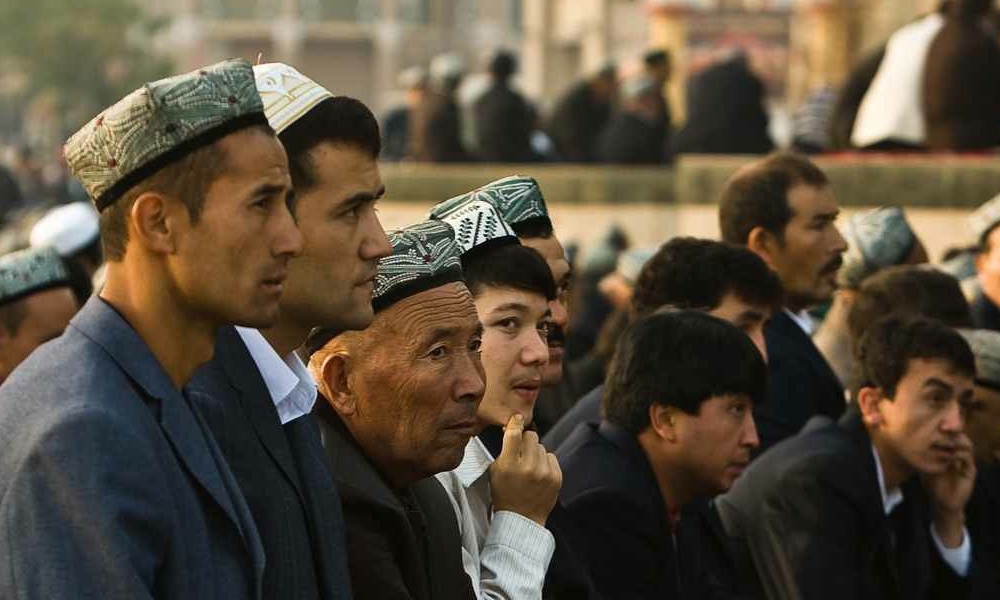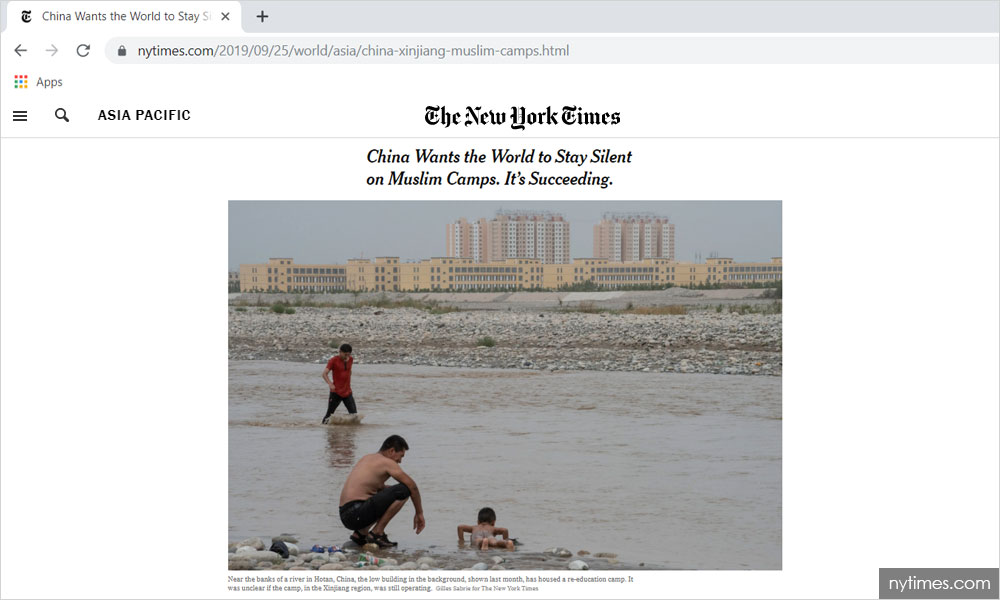
The Foreign Affairs Ministry has condemned a New York Times report that purportedly quoted a Malaysian diplomat regarding the condition at Uyghur “re-education camps” in Xinjiang, China.
In a statement today, the ministry said it does not comment on the specifics of internal communications but asserted that it was inaccurate to claim that the diplomat’s account of the camps had been “buried”.
“The article does not reflect the true and professional act of journalism. Instead, it appears to carry malicious intent.
“The ministry does not comment on the specifics of its internal communications which are a matter of strict confidentiality.
“Those communications are not meant to be made public. Therefore, allusions that this report, or any other internal communications, was ‘buried’ is inaccurate,” Wisma Putra said.
In the Sept 25 report titled “China wants the world to stay silent on Muslim camps. It’s succeeding”, NYT quoted an unnamed Malaysian diplomat’s report of his visit to the camp in December last year.

The report was one of two reports that the NYT said were highly critical of China’s actions in Xinjiang, the other being purportedly penned by European Union officials.
“China may have legitimate reasons to implement policies intended to eliminate the threat of terrorism, especially in Xinjiang.
“However, judging by its approach, it is addressing the issue wrongly and illegitimately, eg by preventing Muslim minors from learning the Quran,” the Malaysian diplomat’s report purportedly said.
The NYT report claimed that delegates visiting the camp would “sense fear and frustration” from the Uyghur students and noted the diplomat’s account was not made public.
It speculated that this was because the report came a time when Malaysia was renegotiating infrastructure deals with China.
The Chinese government has placed some 1.5 million Uyghur Muslims in "re-education camps" which it claims is necessary to combat Islamic extremism.
Since the publication of the NYT report, Malaysian Prime Minister Dr Mahathir Mohamad had told an interview with another publication that Muslim countries have been silent about the prosecution of Uyghurs because “China is a very powerful nation”.
He was asked why Muslim countries, including Malaysia, don’t speak up for the Uyghurs as must as they speak up for the Rohingyas or the Palestinians.
Meanwhile, Wisma Putra said Malaysia and China enjoy warm and deep ties, which are not only political and economic but also cultural and civilizational.
“It is only natural that ties as deep as these will certainly result in different perspectives from time to time.
“However, in the case of Malaysia-China relations, any differences will be resolved through dialogue and frank discussions in a manner that is respectful towards one another, bearing in mind the principles of equality, as well as mutual cooperation, interests and benefit,” the ministry said. - Mkini



No comments:
Post a Comment
Note: Only a member of this blog may post a comment.